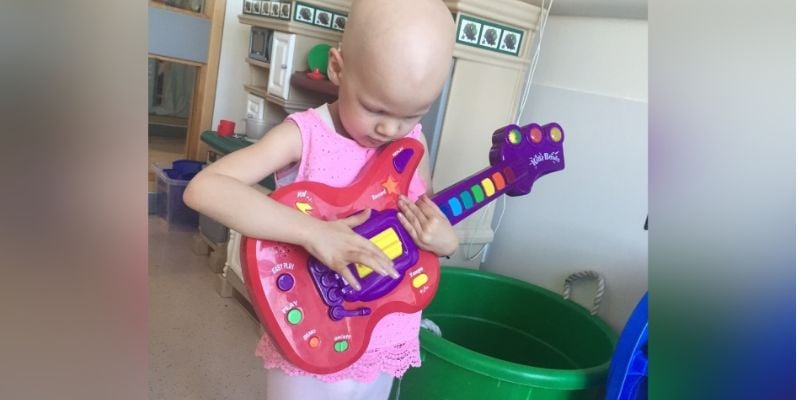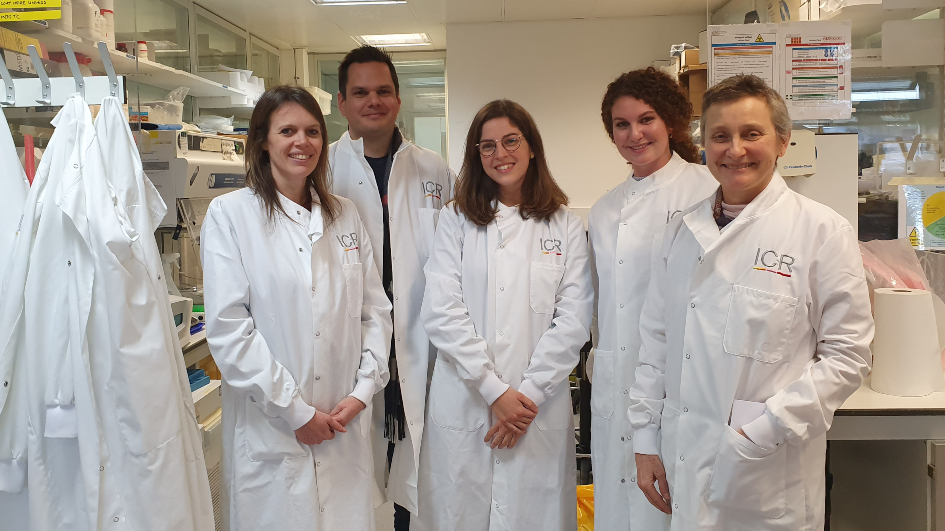
Alice’s Arc was inspired by Sara and David's daughter Alice who, at the age of 3, was diagnosed with stage 4 alveolar rhabdomyosarcoma. She passed away in October 2019, aged just 7.
She was diagnosed in March 2015 and had 20 months of intensive chemotherapy at Great Ormond Street Hospital (GOSH) in London and proton radiation at the University of Florida Health Proton Therapy Institute.
Alice was in remission before her cancer returned in February 2018 and again in August 2019. During this time she underwent relapse chemotherapy at GOSH and a specialist surgical procedure with brachytherapy, known as AMORE at the AMC Hospital, in Amsterdam.
Throughout their journey, Alice’s parents have become part of a worldwide network of medical professionals and families with children undergoing cancer treatments. They became increasingly aware of the lack of funding and clinical research into the treatment of children’s cancers. There are around 70 new cases of RMS in the UK each year and very few people are currently researching this type of tumour.
Sara and David said:
“Upon relapse, treatments tend to stabilise the cancer but they do not cure. There are very few treatment options available. We need to understand more about these tumours and find a way to cure rhabdomyosarcoma before more children are lost to the disease. This is why we are investing in the ICR’s research.
“We have been shocked and saddened at the lack of research in to childhood cancers such as rhabdomyosarcoma.
“The money we raise now and in the future for the ICR, will contribute to better treatments and, one day, a cure for children diagnosed with rhabdomyosarcoma.
Tireless fundraising and support
Alice’s Arc has donated and pledged approaching £2 Million toward our rhabdomyosarcoma research to date. The majority of this phenomenal support has been towards the laboratory of Professor Janet Shipley and team here at the ICR. Support from Alice’s Arc has helped us to push forward understanding in multiple important areas - with the ultimate aim of developing kinder treatments for RMS that are more effective and with fewer side-effects.
Professor Janet Shipley, leader of the Sarcoma Molecular Pathology Team at the ICR, said:
“Current treatments for rhabdomyosarcoma can cause severe side-effects in a child or a growing teenager. I am immensely grateful to our family charities, such as Alice’s Arc, for their tireless fundraising and support towards our research into more effective treatments, which could enable many young patients with the most aggressive forms of rhabdomyosarcoma to lead longer, healthier and more fulfilling lives.”
As part of their 'personalised medicine' approach, Professor Shipley's team is studying the molecular biology of RMS samples to develop more targeted treatments. The aim is to avoid damaging healthy cells when treating children. This is particularly important for children because non-specific and toxic chemotherapy drugs can result in long-term side effects that can seriously impact a child’s development.
Meet the ICR’s team supported by Alice’s Arc:
Sarcoma Molecular Pathology Team
Sarcoma Molecular Pathology Team - Research overview
